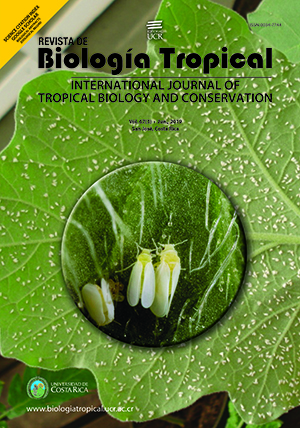Abstract
Colossoma macropomum is a frugivorous fish from the Amazon and Orinoco river basins. This species has an important economic and social role in both river watersheds; it also has been overfished for more than 40 years, leading to changes in the populations structure. Currently adults are less common in fisheries, while juveniles are more frequently fished and sold in several market places along the Amazon River. Reportedly adult individuals consume a vast quantity of fruits and seeds and has been recognized as effective seed dispersers that plays a significant ecological role. Although frugivorous fishes are important dispersers in tropical rainforests, assessments of their effectiveness in dispersing seeds and in the effect on the germination of these ingested seeds are still insufficient. Cecropia latiloba and Cecropia membranacea are two pioneer tree species that initiate the succession process in the tropical forest and are both widely consumed by C. macropomum. In this study we aimed to verify if the Cecropia seeds that pass through the digestive tract of juveniles of C. macropomum would show improved germination. The results obtained through controlled experiments confirm that seeds that pass through the digestive tract of C. macropomum retained their germination capacity. Although the responses in the improvement of the germination variables (germination capacity, minimum imbibition time, time necessary for reaching 50 % germination capacity, emergence velocity index and germination mean time) did not show statistical differences between treatments, the seedlings that grew from the seeds consumed by the fish were taller than those without the digestive treatment. We conclude that juveniles of C. macropomum have the possibility to disperse the seeds of these Cecropia species.
##plugins.facebook.comentarios##

This work is licensed under a Creative Commons Attribution 4.0 International License.
Copyright (c) 2019 Francisco Javier Luque-Moreno, Gabriel Antonio Pinilla-Agudelo







